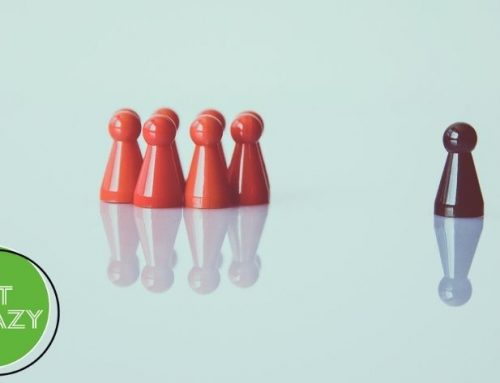 When I got into advocacy work, public speaking, and blogging, I knew there would be people who disagreed with me and even disliked me altogether. I am familiar with pop culture references to “haters” and I know the comment section can be a difficult place to get opinions about my work.
When I got into advocacy work, public speaking, and blogging, I knew there would be people who disagreed with me and even disliked me altogether. I am familiar with pop culture references to “haters” and I know the comment section can be a difficult place to get opinions about my work.
Much of the feedback I receive is easy to deal with. Compliments give me confidence, disagreements give me knowledge, and insults give me motivation. I am not against any type of feedback; talking to people is how I grow. Even the meanest feedback I have ever received has taught me something.
However, there is a type of comment, criticism, or statement that I don’t fully understand. I am not always certain the motivation of the person saying it and I am not sure how to respond. I am told, with some frequency, that my bipolar disorder isn’t severe enough.
This statement always follows the same line of thinking: I don’t look sick, I can pass for someone who doesn’t have bipolar disorder; their loved one was sicker, they are sicker, and having bipolar disorder didn’t prevent me from being successful, so how bad could my illness be?
Most illnesses are on a spectrum, including bipolar disorder. There are many levels of severity and many things that affect how severe a particular case is. Being treated, for example, often results in a much lower level of severity than being untreated. Even something as simple as the age of the person can change the outlook completely. But more than anything, the day you come in contact with me can change how you feel about how severe my bipolar is (or isn’t).
The day I woke up in a psychiatric hospital for suicidal ideation, delusions, and crippling depression was not a day that anyone would think to say to me that my illness wasn’t severe. But years later, after many medication failures and successes, much therapy, and experience, I am doing very well.
These comments are some of the rare instances where I am left not knowing what to say. Do I try to convince them that I do, in fact, have severe bipolar disorder? That I have been through hell with this illness and what you see today is me overcoming a crippling, debilitating, soul-sucking illness?
Do I put myself in their shoes and consider all the reasons they may be saying this to me? It is more likely than not that the comment has little to do with me and says more about how they feel about themselves or their loved one. After all, if I am doing well and they are not, it could be because they can’t do better. It takes the pressure off of them, or their loved one, and puts it back on the illness.
This is a slippery slope, and a dangerous one. I cannot just go around telling people with bipolar disorder that they all can reach the same level of success as I have. For starters, some folks can reach a higher level of success. I am not done fighting symptoms, cycles, medication side effects, and the like. I want to continue to minimize the impact of bipolar on my life.
Additionally, as bipolar disorder exists on a spectrum, some do have a more severe case than I do. I also have co-occurring general anxiety disorder and panic disorder diagnosis. So, in that way, my mental illness could be more severe than someone with only bipolar disorder. Even then, that isn’t certain.
I do my best not to compare my journey with bipolar disorder with another person’s. At the same time, I want to send a message of hope, wellness, and recovery to anyone I come into contact with. I want people to understand that, with the right combination of medical intervention and personal fortitude, they have a good chance of leading a successful and productive life.
There are many discouraging stories about people suffering with bipolar disorder in the mainstream. Let’s work together to add stories of people overcoming bipolar disorder.
Gabe Howard
This article originally appeared on ibpf.org as My Bipolar Isn’t Severe Enough





